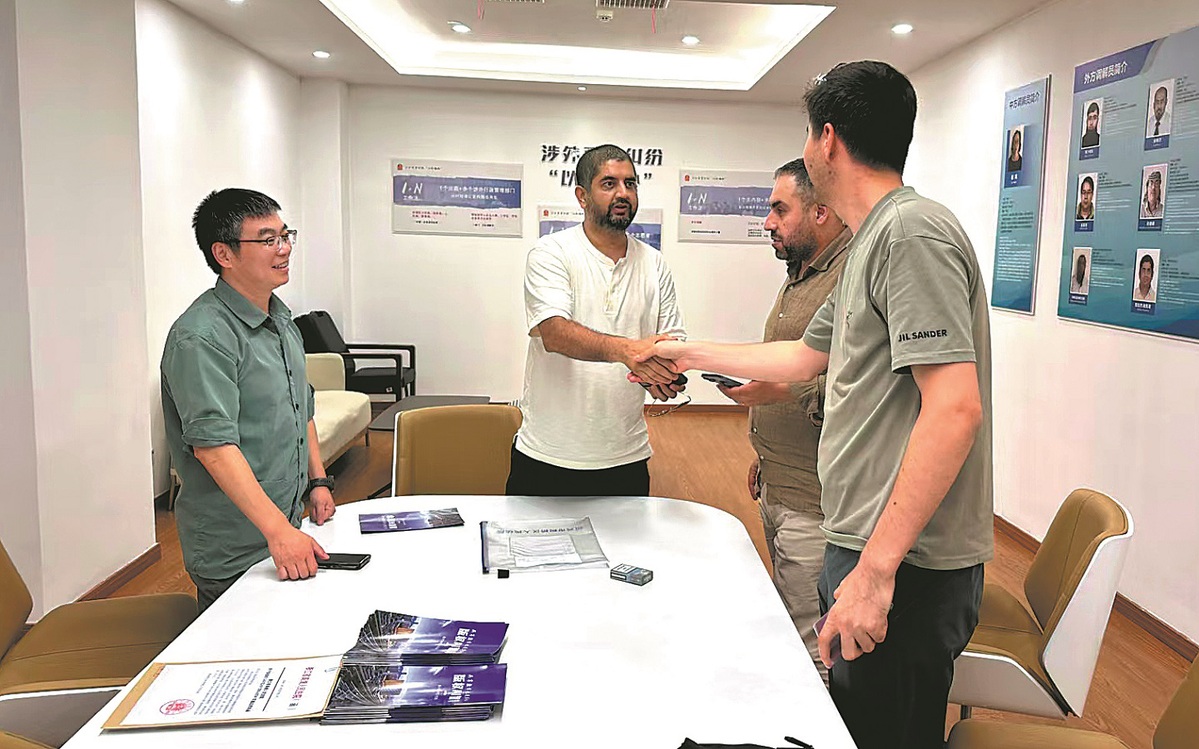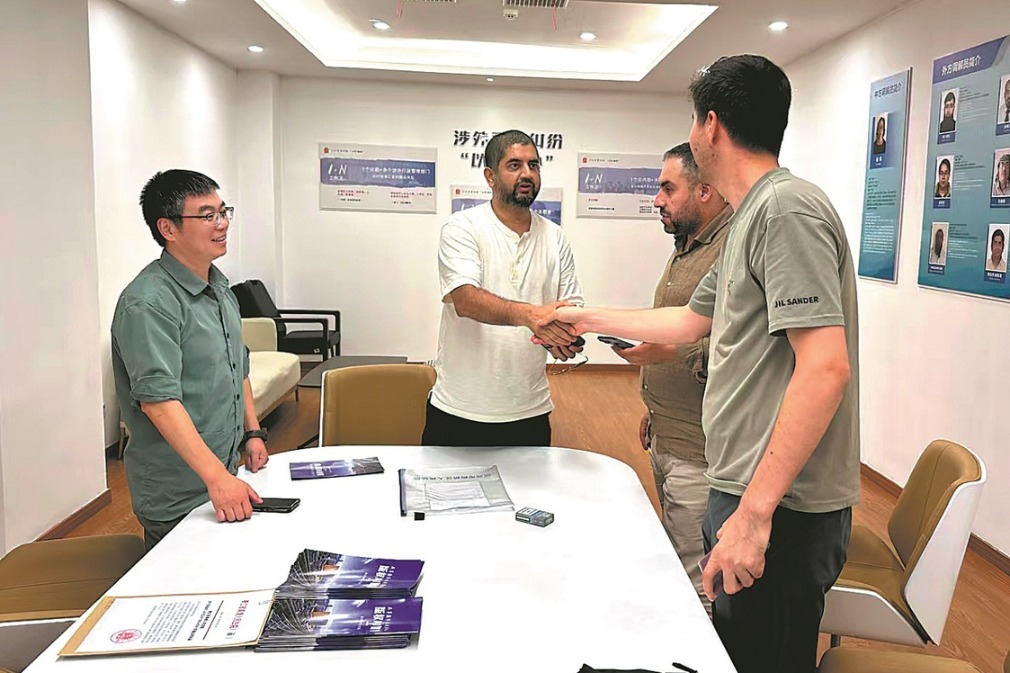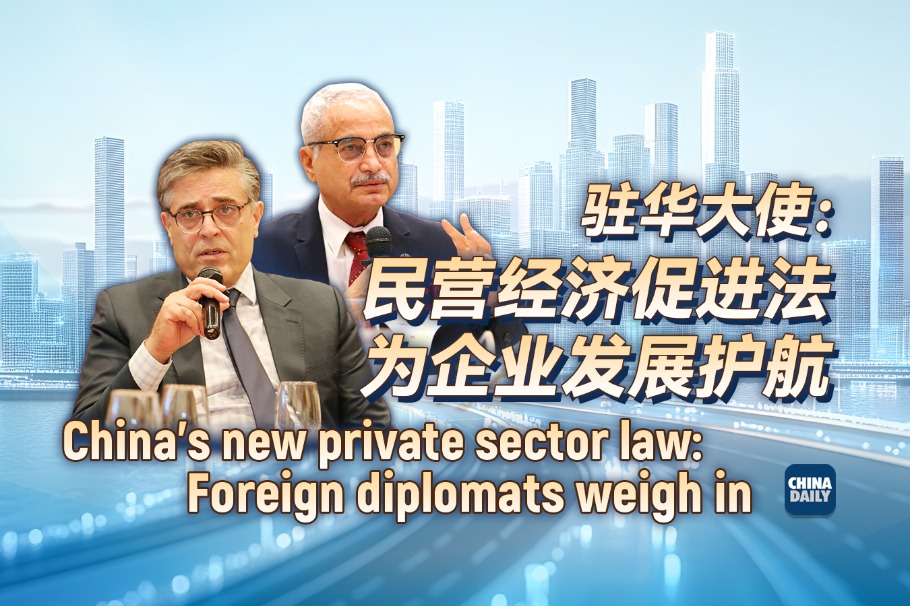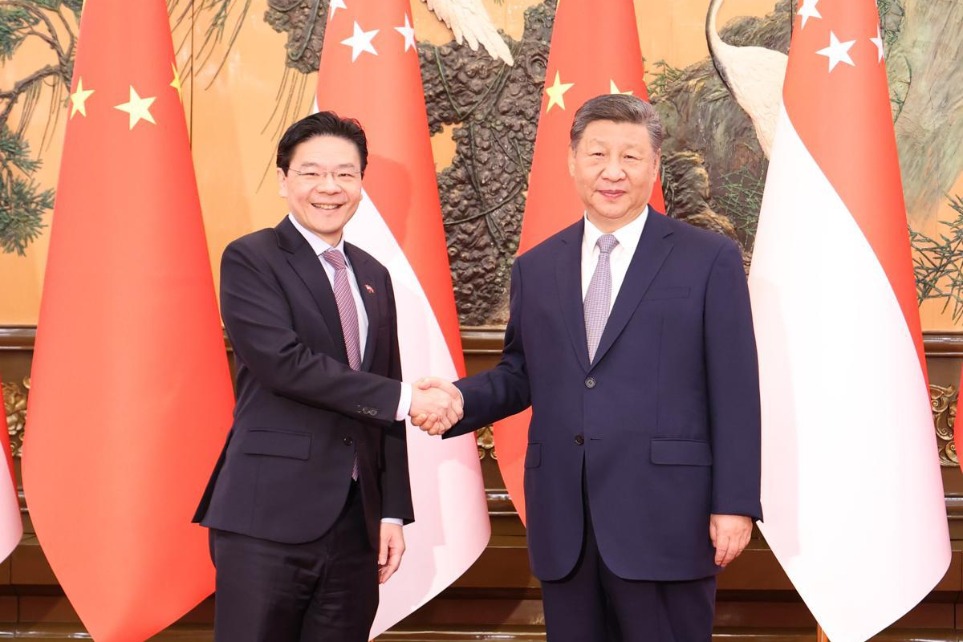Foreign mediators play crucial role in dispute resolution
Assistants with language skills, cultural understanding aid courts in handling cases


Building confidence
In 2016, Omuralieva came to Yiwu to study Chinese at a local industrial and commercial vocational and technical college. About one year later, by chance, she learned that the mediation committee was recruiting volunteer translators. Encouraged by her teacher, she signed up.
"At that time, I didn't know that in China, disputes could be resolved through mediation instead of litigation. This is something we don't have in my country," she said. After observing and participating in mediation several times, she was truly impressed by the Chinese dispute resolution mechanism, which she described as "equal, efficient, and trustworthy".
Over the past five years, Omuralieva has resolved many disputes through mediation. "I can give foreign merchants a greater sense of security," she said, adding that using her language and cultural advantages to help them address issues in a time-saving and cost-effective manner is something she finds very meaningful.
Raj Kumar Khadka, a Nepalese business owner, is also a volunteer foreign mediator. Since 2018, he has mediated more than 100 disputes with a success rate of over 95 percent. Recalling a case that took four and a half hours to mediate in late March, Khadka said, "I was so excited and cheered up when I saw the Cameroonian trader and the Chinese merchant shake hands and make an agreement in the end."
More than 20 years ago, while doing business in India and Thailand, Khadka noticed that many goods in those countries came from Yiwu. This piqued his interest in the eastern Chinese city. In 2002, he first set foot in Yiwu and was instantly captivated by its vibrant business atmosphere, which inspired him to start his own business.
After a decade of hard work, he opened his own trading company, engaging in toy and hardware exports. In 2015, he saw the mediation committee signboard in the market. Out of curiosity, he began learning about how it deals with foreign-related disputes through mediation.
"My Chinese was not good at that time, so I could only be an observer," he laughed. After two years of preparation and eight months of training organized by the committee in 2017, he became a foreign mediator in 2018.
"Yiwu has not only made my business successful but also enriched my life. It's my second hometown," he said. "Since I have received so much from this city, I also want to give something back."
Khadka is required to spend two to three days a month on duty at the committee. When emotionally agitated foreign merchants come for help or apply for mediation, he always greets them with a smile and offers them understanding.
"It is inevitable that Chinese and foreign merchants will have disputes over product delivery standards or payment. A way to ease their anger is to patiently listen to both sides and promptly figure out what their problems are," he said.
Khadka said providing mediation services to foreign traders has allowed him to earn their trust and build new friendships.























